Food of the
italian
islands
Katie Parla
Recipes from the Sunbaked Beaches, Coastal Villages, and Rolling Hillsides of Sicily, Sardinia, and Beyond
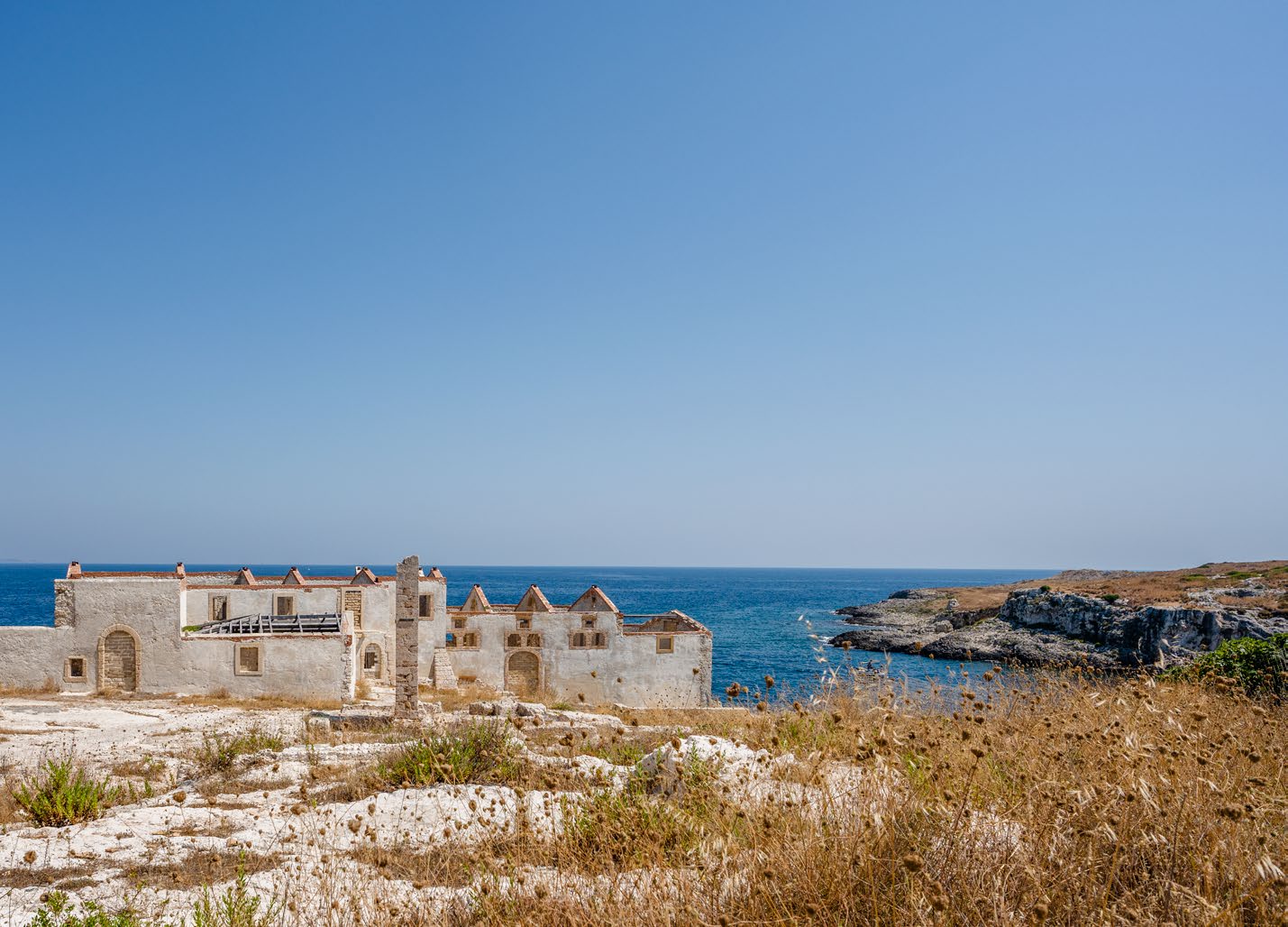
Table of Contents
Chapter 1
Snacks
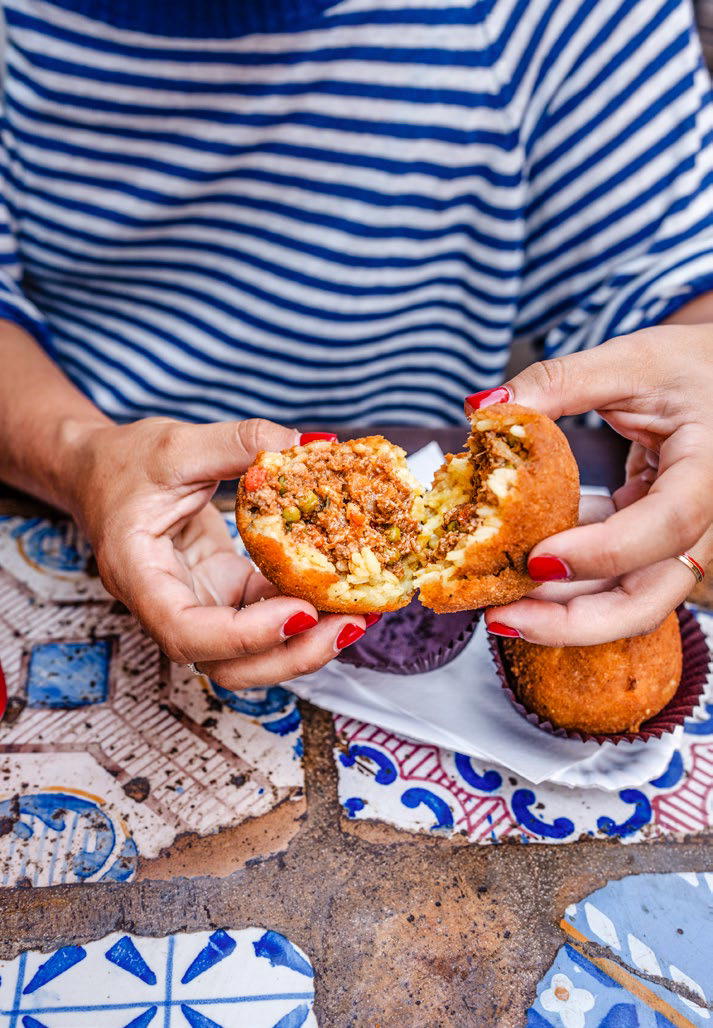
Arancine al Ragù
14 ingredients · 1 hr 40 mins

Ragù di Carne
10 ingredients · 2 hrs
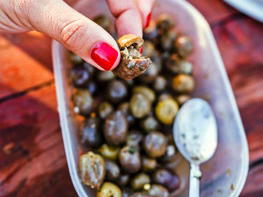
Olive Condite
9 ingredients · 10 mins
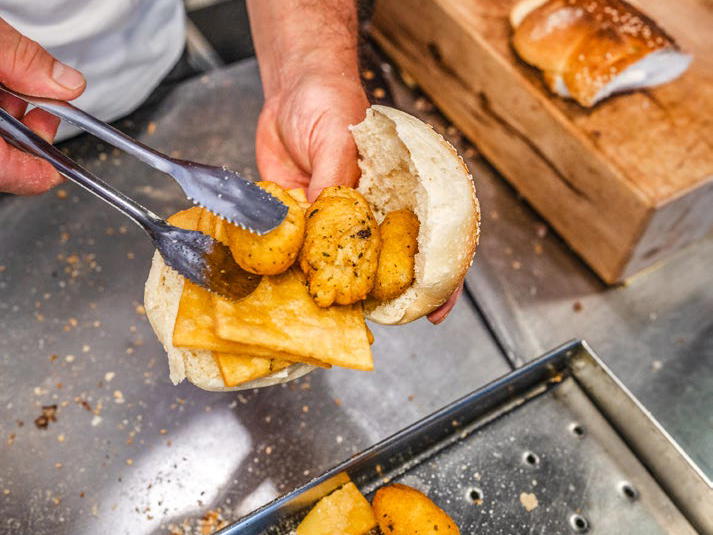
Panelle
8 ingredients · 50 mins

Gattò di Patate
11 ingredients · 35 mins
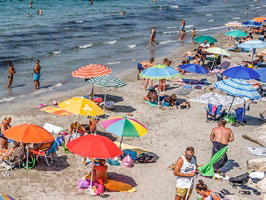
Pane Cunzato
12 ingredients · 10 mins
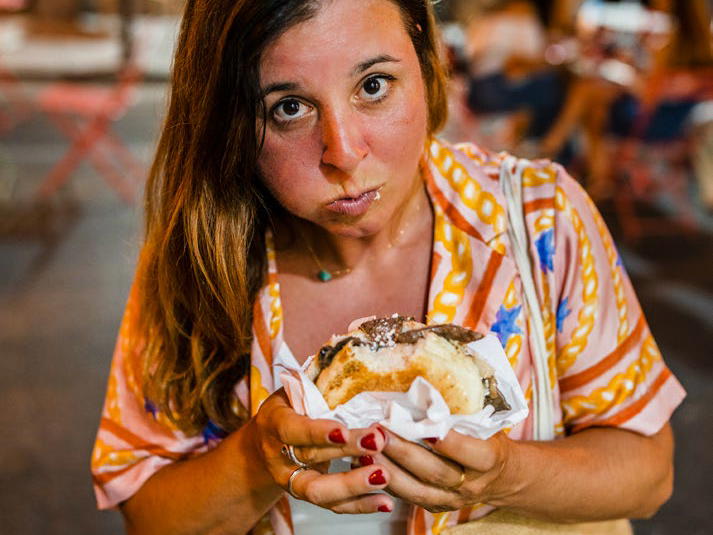
Pane c Meusa
9 ingredients · 1 hr 25 mins
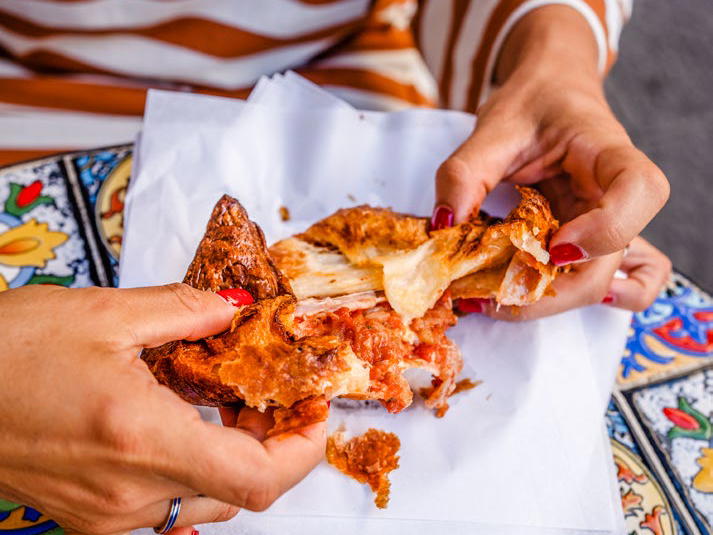
Cipolline Catanesi
8 ingredients · 1 hr 50 mins
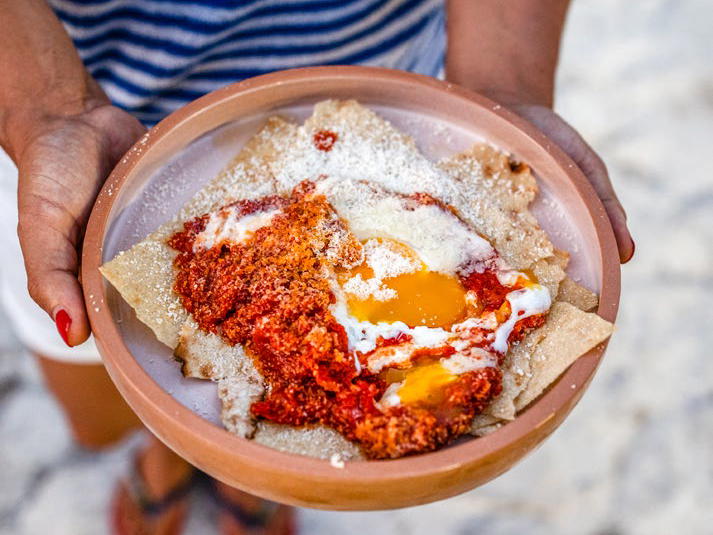
Pane Frattau
8 ingredients · 40 mins
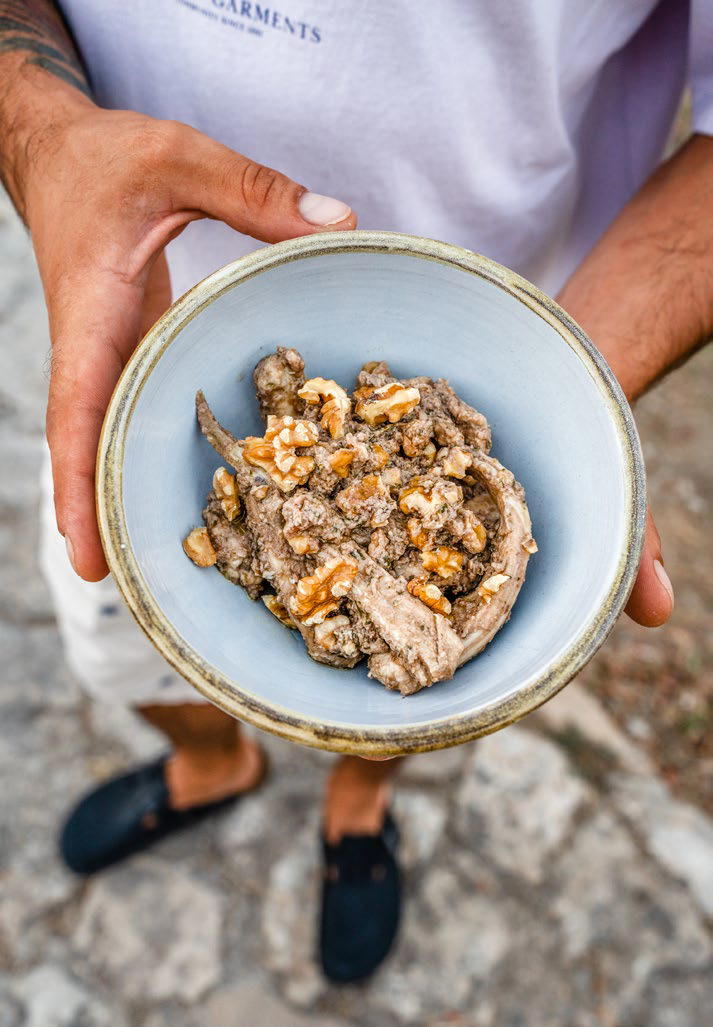
Burrida a Sa Casteddaia
10 ingredients · 25 mins
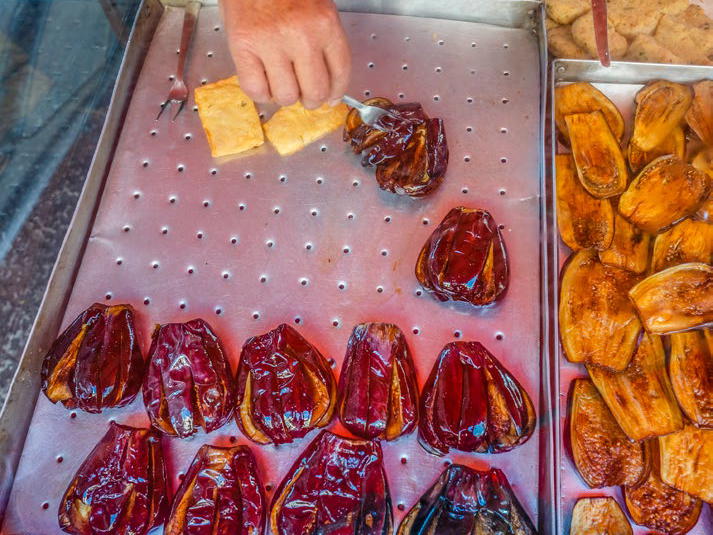
Melanzane a Quaglia
5 ingredients · 45 mins
Chapter 2
Pasta
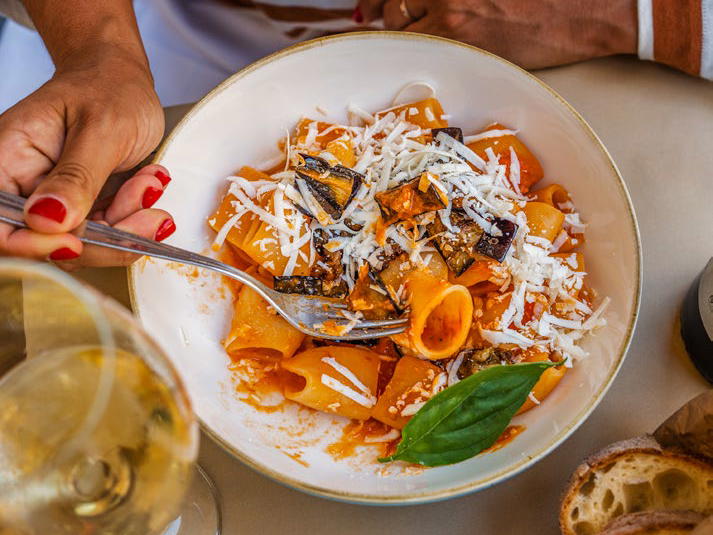
Pasta alla Norma
8 ingredients · 1 hr 25 mins

Pesto Eololiano
9 ingredients · 20 mins
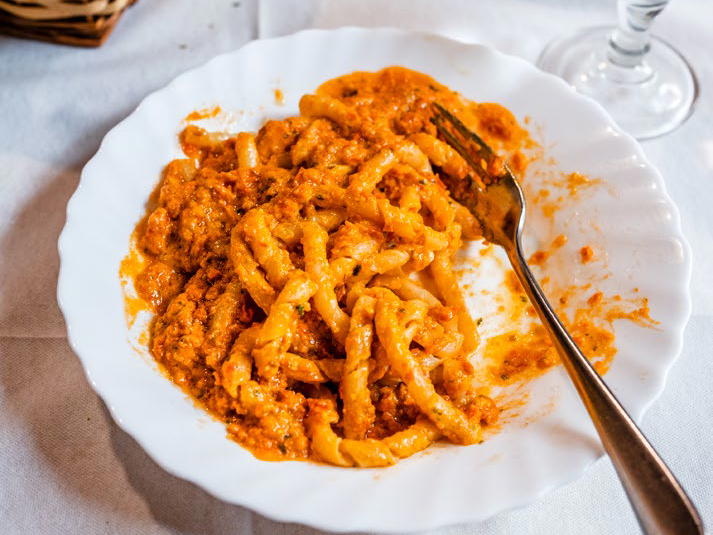
Pasta cu l’Agghia
8 ingredients · 20 mins
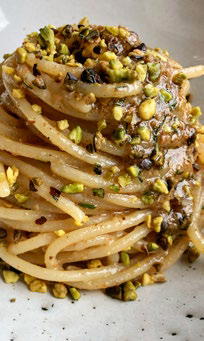
Pesto di Pistacchi
8 ingredients · 20 mins
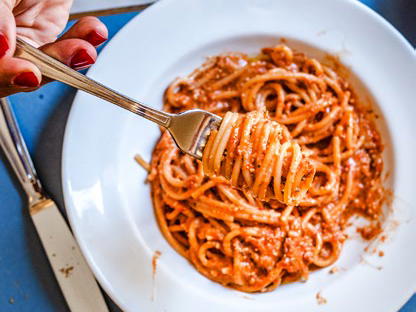
Pesto Pantesco
9 ingredients · 15 mins
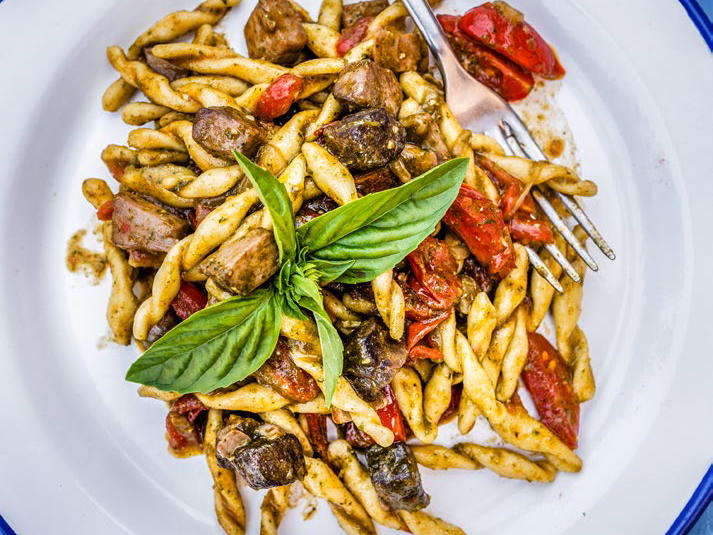
Pesto alla Carlofortina
10 ingredients · 30 mins

Pesto di Broccoli e Mandorle
7 ingredients · 25 mins
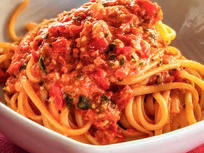
O’ Pistu Linusaru
8 ingredients · 35 mins

Ravioli Panteschi al Sugo Povero
6 ingredients · 1 hr 8 mins
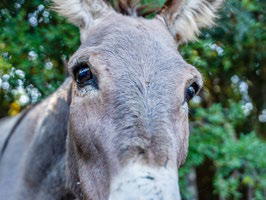
Maccarrones de Poddighe con Polpettine e Pecorino
13 ingredients · 1 hr 10 mins
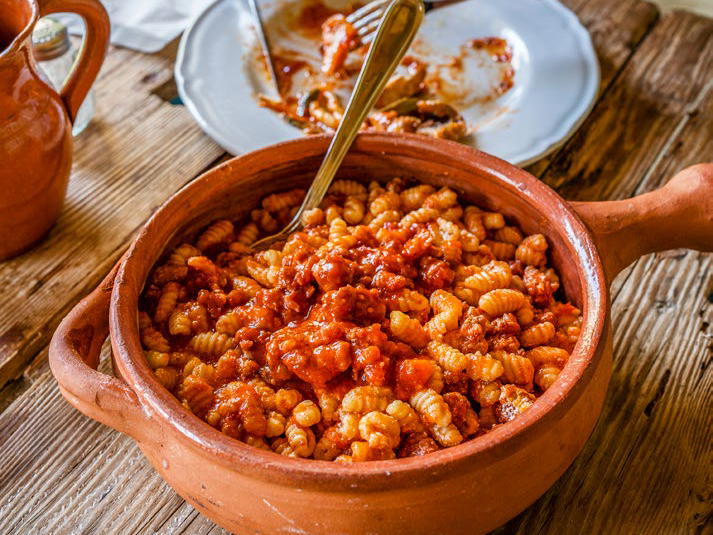
Malloreddus alla Campidanese
11 ingredients · 1 hr
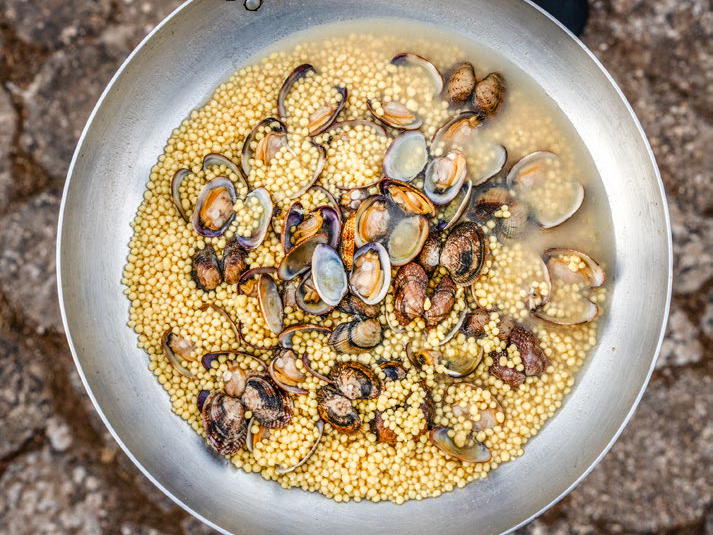
Fregula con le Arselle
8 ingredients · 1 hr 5 mins
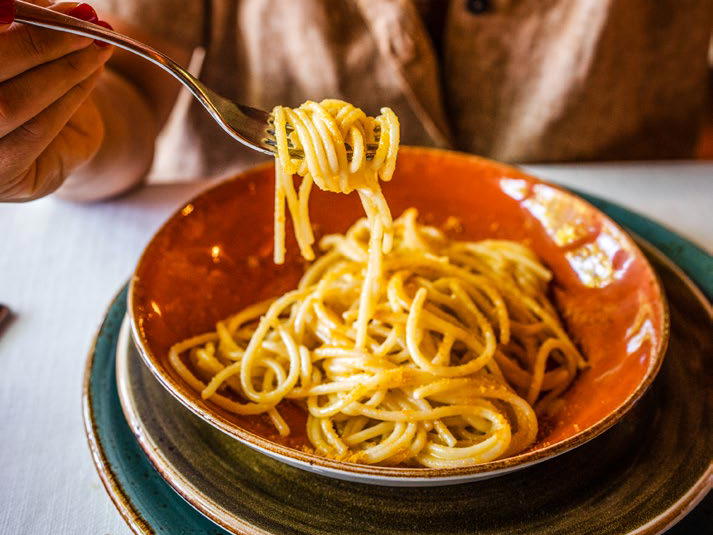
Spaghetti alla Bottarga
5 ingredients · 22 mins
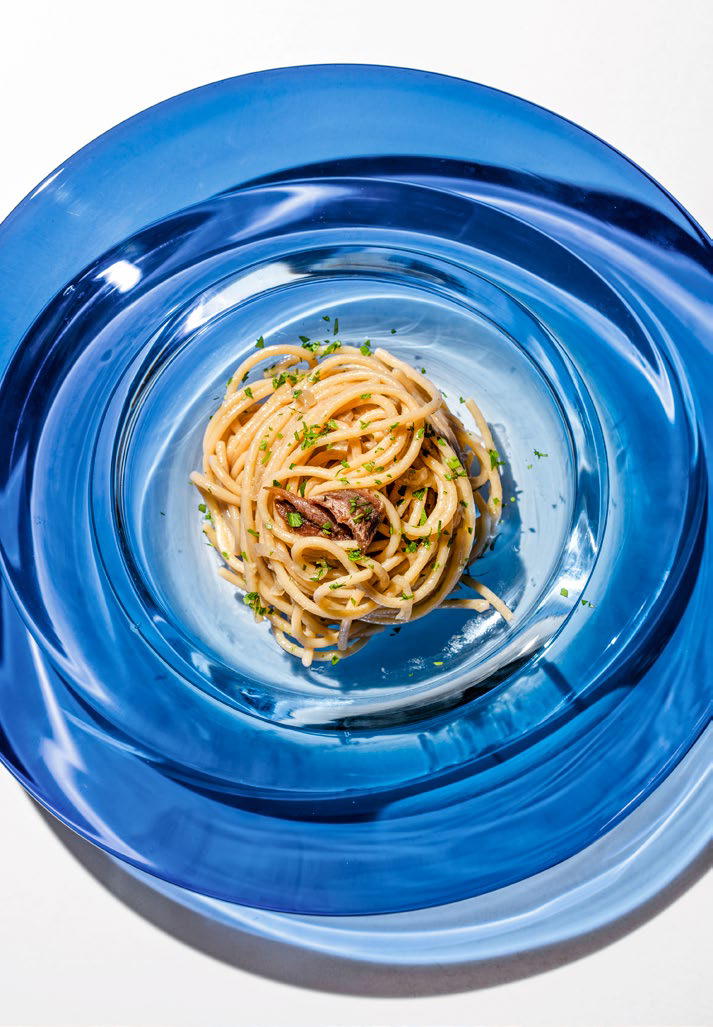
Bigoli in Salsa
7 ingredients · 35 mins
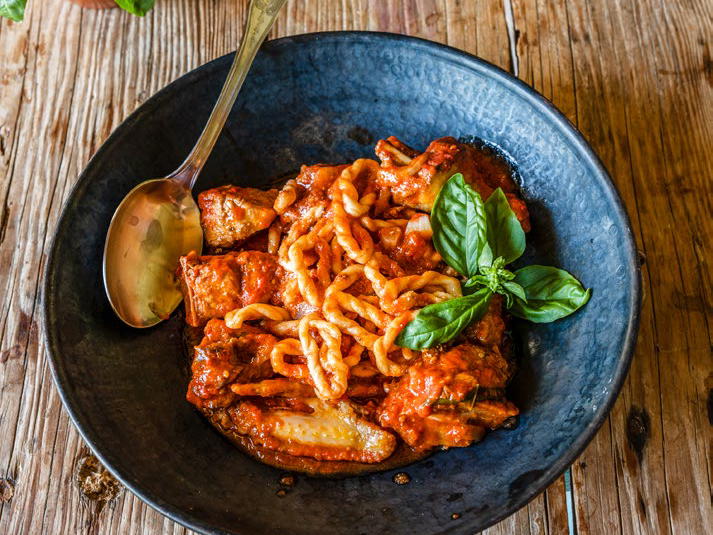
Lorighittas con Ragù di Galletto
8 ingredients · 1 hr 25 mins
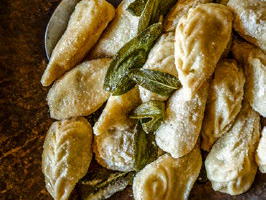
Culurgiones con Burro e Salvia
6 ingredients · 1 hr 38 mins
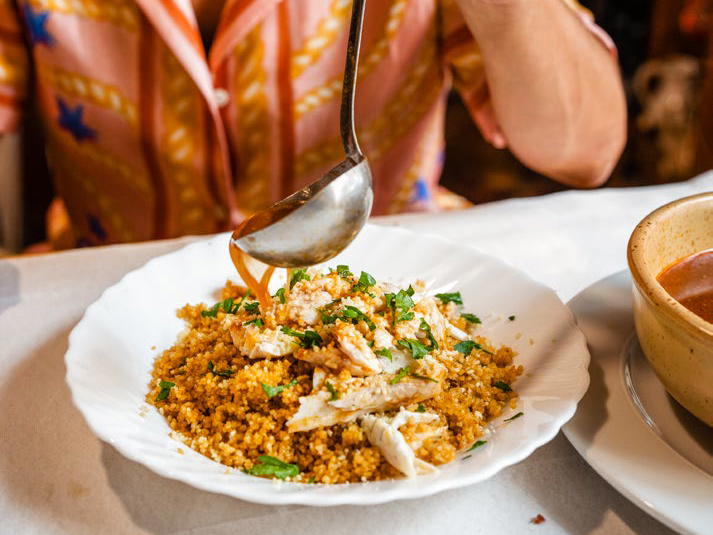
Cùscusu con Pesce
11 ingredients · 2 hrs

Zuppa di Cicerchie
8 ingredients · 2 hrs 55 mins
Chapter 3
Soups and Stews
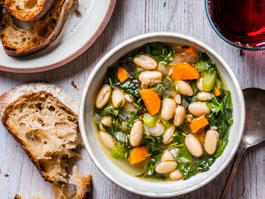
Minestra Ventotenese
9 ingredients · 1 hr 5 mins

Pasta con Patate e Provola
9 ingredients · 40 mins
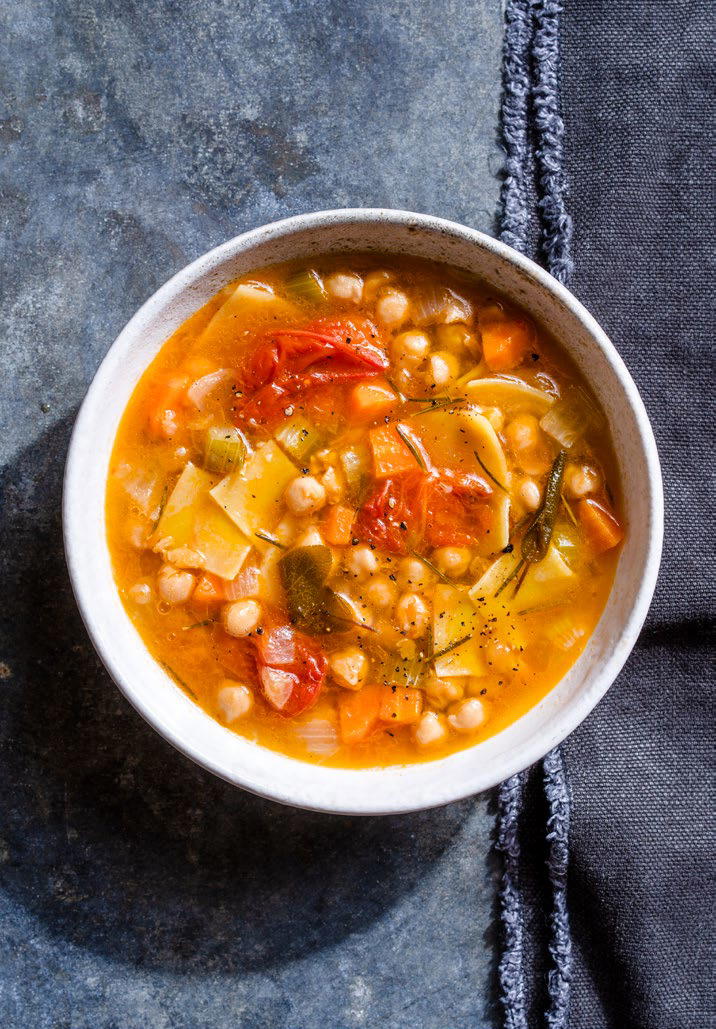
Pasta e Ceci Estiva
13 ingredients · 50 mins
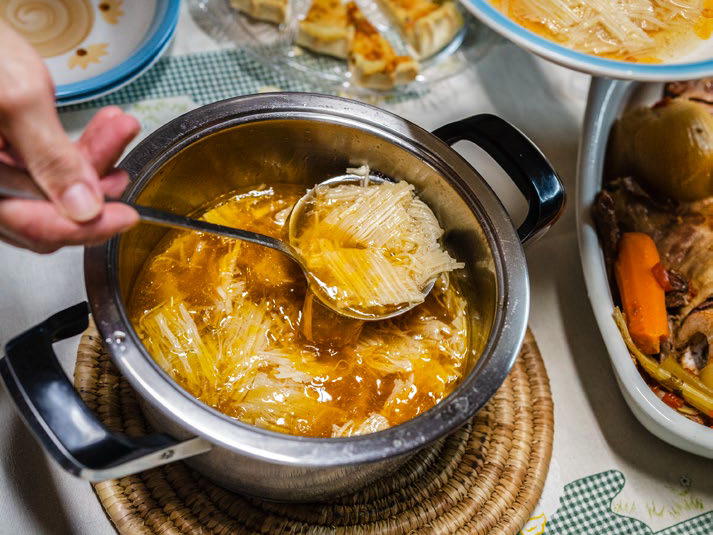
Su Filindeu in Brodo di Agnello
9 ingredients · 4 hrs 3 mins

Maccu di Fave di San Giuseppe
11 ingredients · 1 hr 45 mins
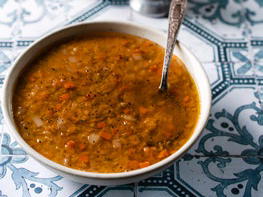
Zuppa di Lenticchie
12 ingredients · 2 hrs 15 mins
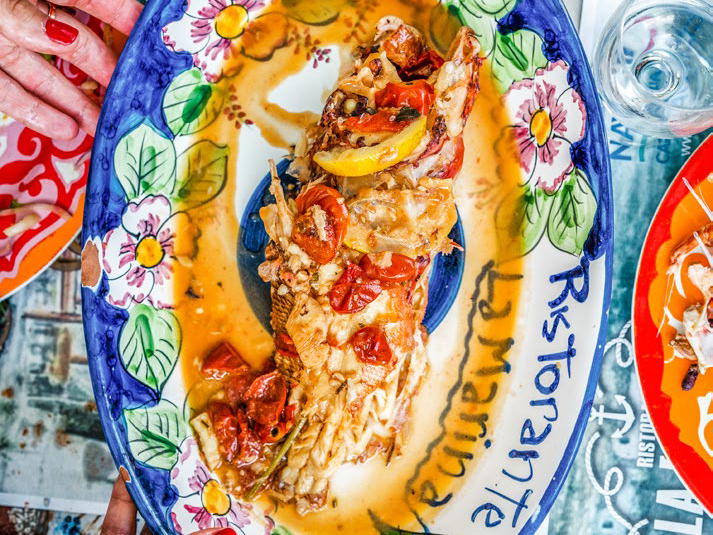
Pesce all’Acqua Pazza
7 ingredients · 40 mins

Zuppa di Fagioli e Pancetta
10 ingredients · 1 hr 45 mins
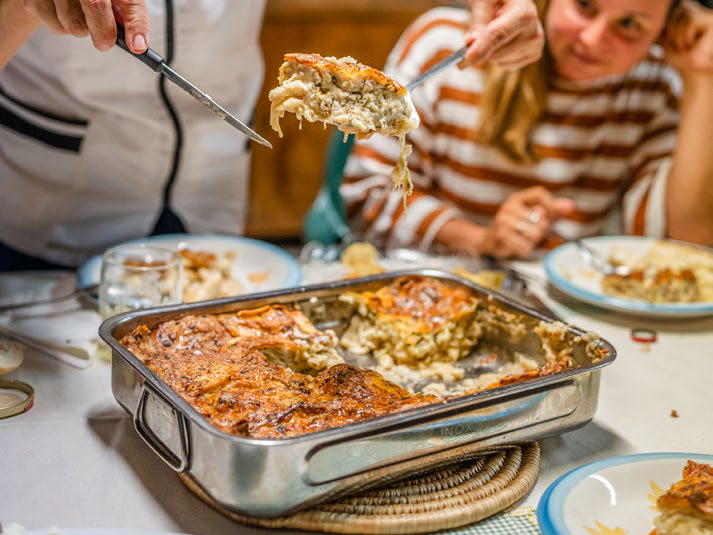
Suppa Cuata
7 ingredients · 1 hr 15 mins
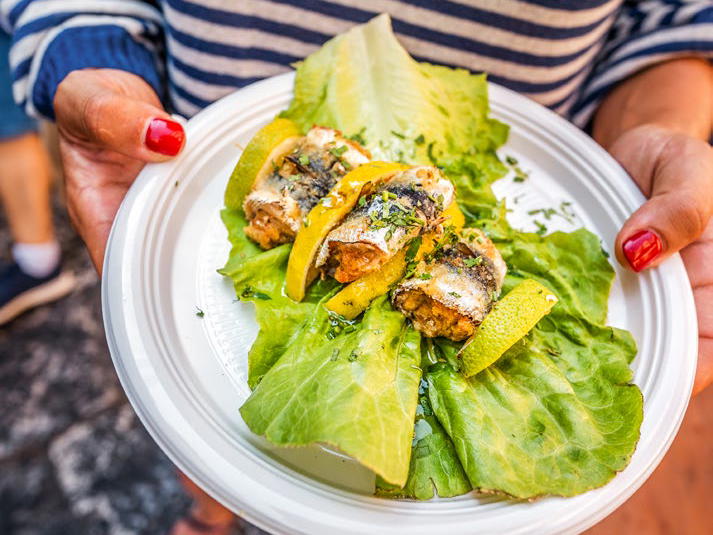
Sarde a Beccafico
11 ingredients · 50 mins

Calamari Ripieni
12 ingredients · 1 hr 10 mins
Chapter 4
Fish
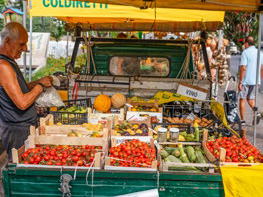
Cernia alla Lampedusana
9 ingredients · 1 hr 30 mins
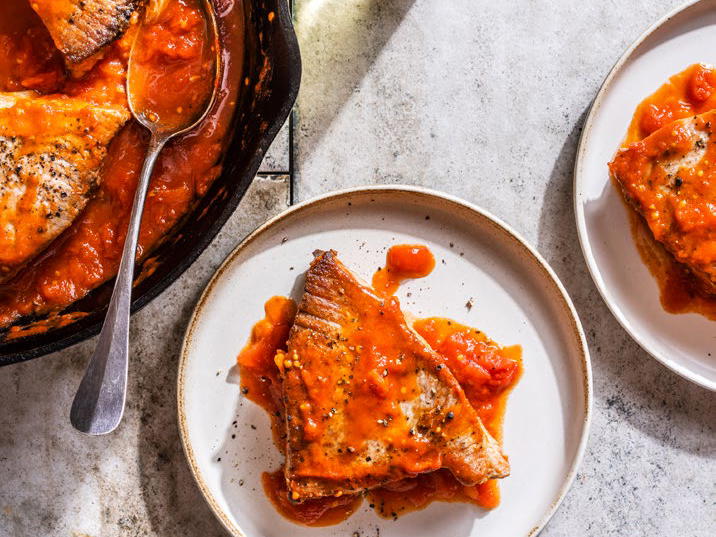
Tonno alla Carlofortina
9 ingredients · 1 hr
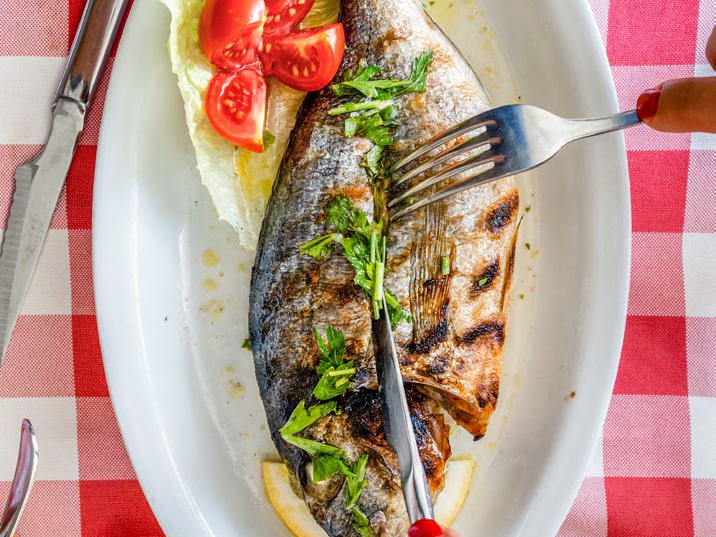
Pesce Grigliato
9 ingredients · 35 mins
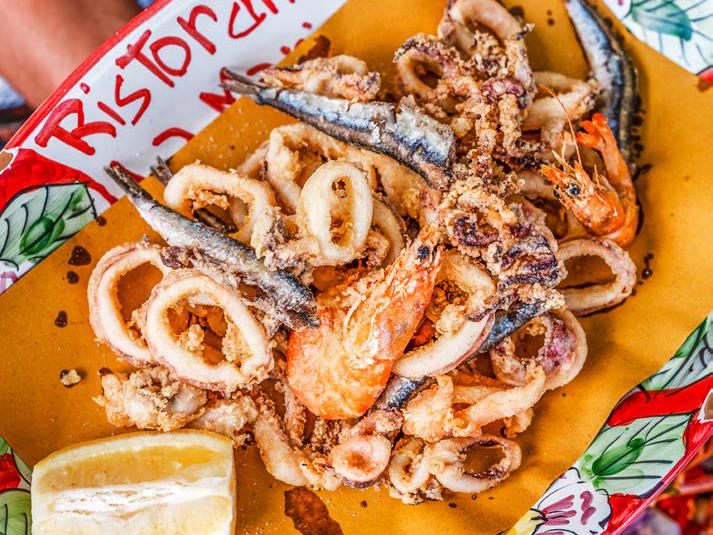
Frittura Mista
8 ingredients · 1 hr
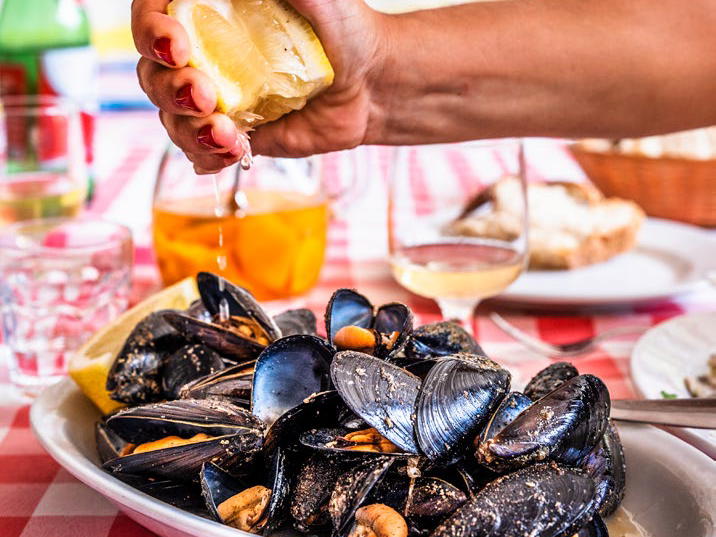
Impepata di Cozze
6 ingredients · 20 mins

Lampuga Panata
9 ingredients · 25 mins
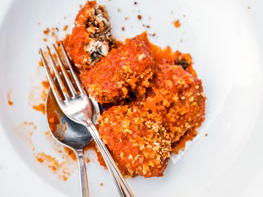
Polpette di Pesce Spada
10 ingredients · 50 mins
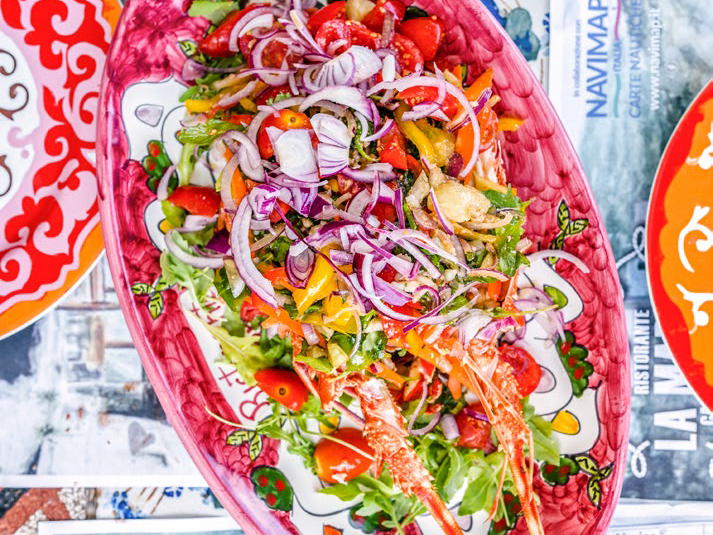
Aragosta alla Catalana
10 ingredients · 50 mins
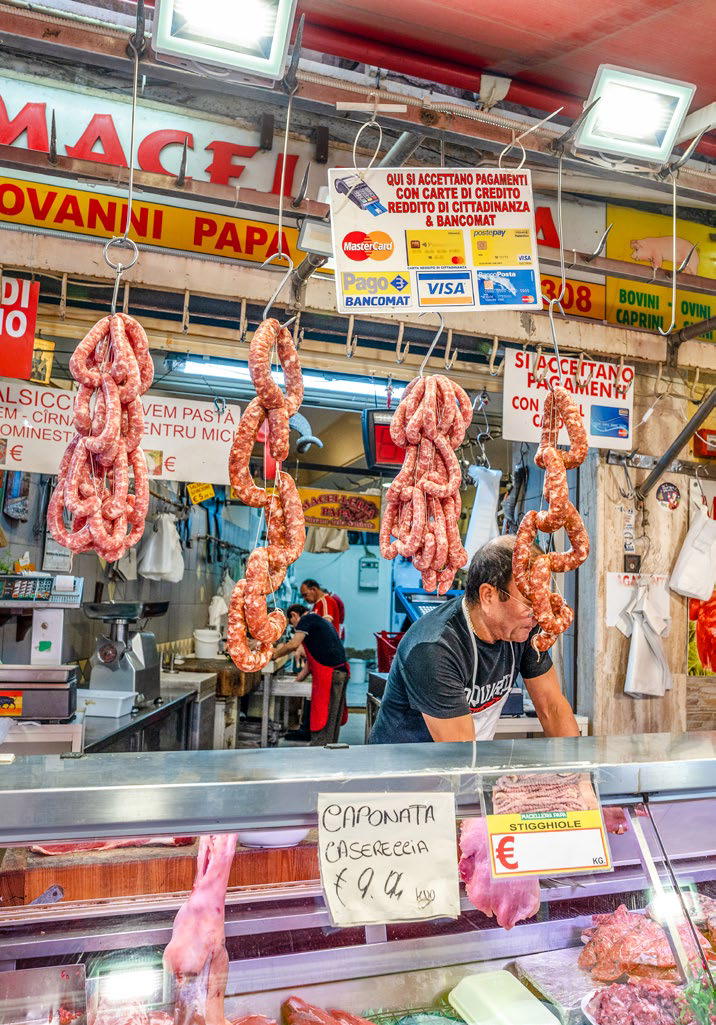
Salsiccia e Friarielli
6 ingredients · 34 mins
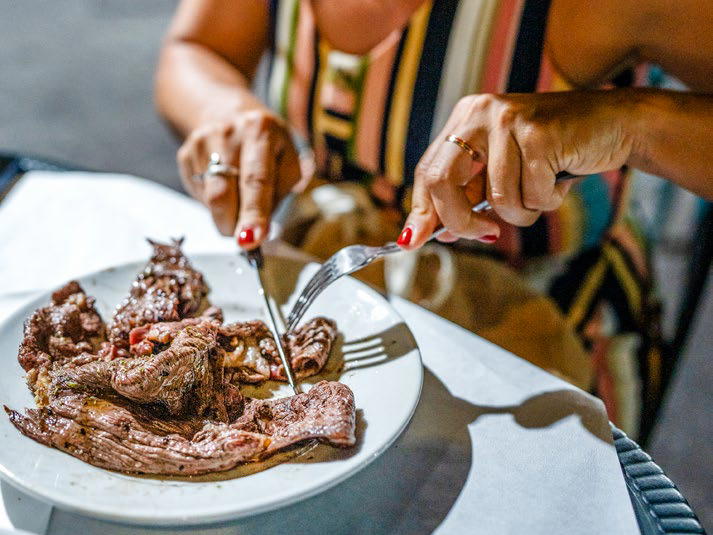
Carne di Cavallo alla Griglia
8 ingredients · 18 mins
Chapter 5
Meat
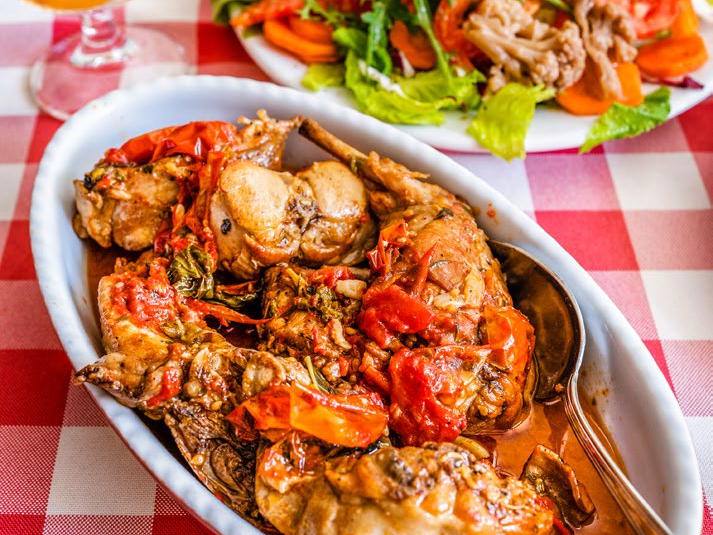
Coniglio all’Ischitana
10 ingredients · 1 hr 25 mins

Braciole alla Messinese
7 ingredients · 40 mins
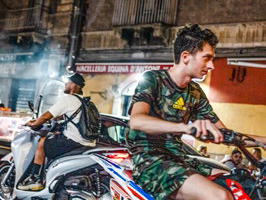
Polpettone
16 ingredients · 1 hr 20 mins
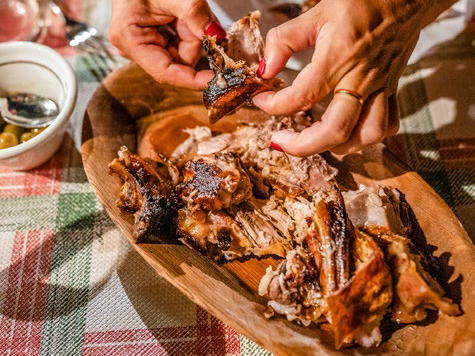
Porceddu Sardu
2 ingredients · 13 hrs 20 mins
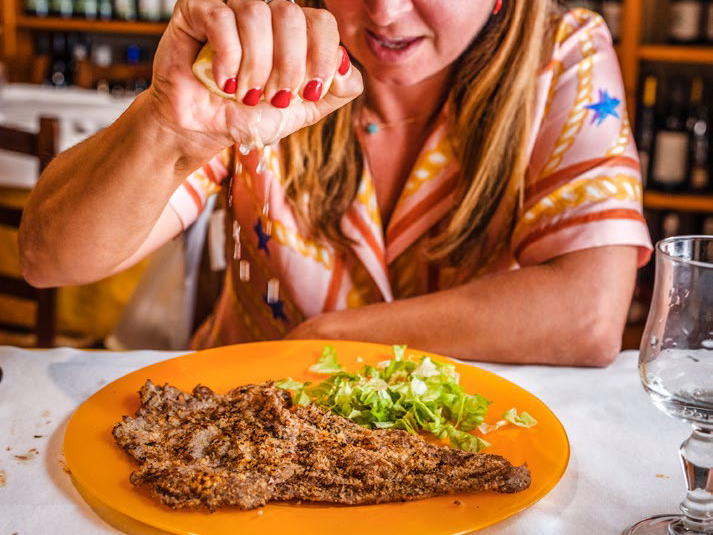
Cotoletta alla Palermitana
9 ingredients · 40 mins
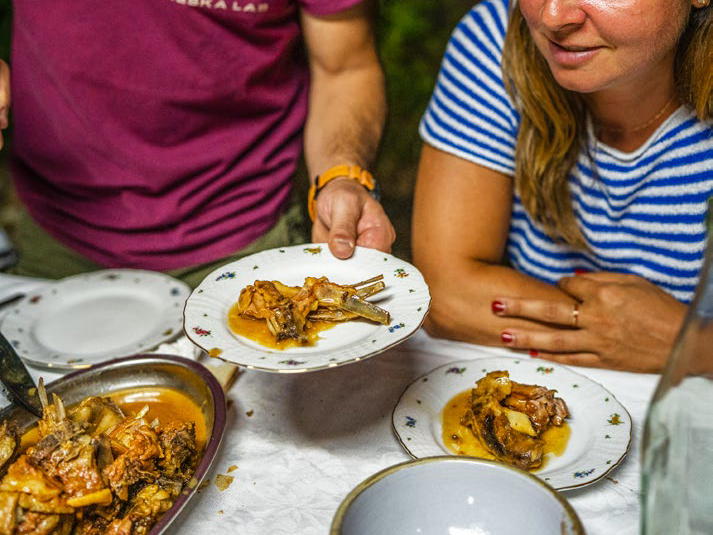
Agnello Brasato
7 ingredients · 1 hr 25 mins
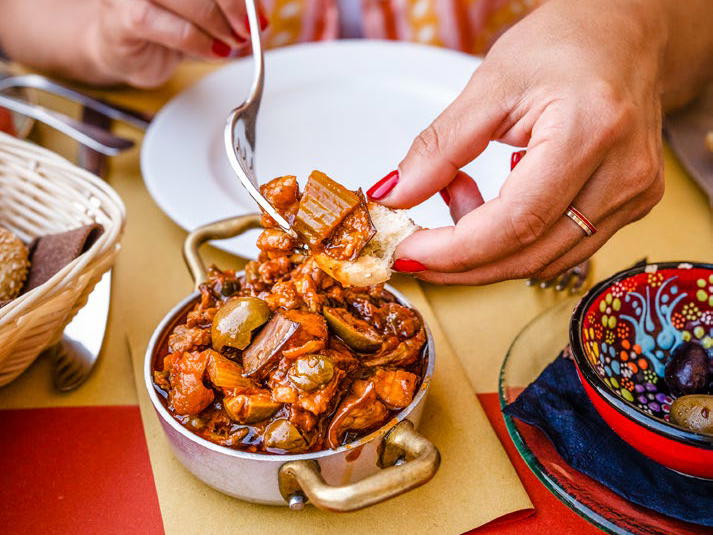
Caponata
11 ingredients · 1 hr 5 mins

Insalata di Carciofi e Bottarga
7 ingredients · 15 mins
Chapter 6
Vegetables, Salads, and Sides
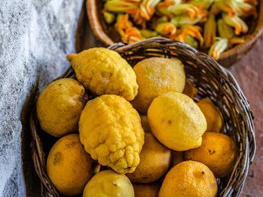
Cavolfiore Al Forno con Limone, Alici, e Pane Grattugiato
10 ingredients · 55 mins
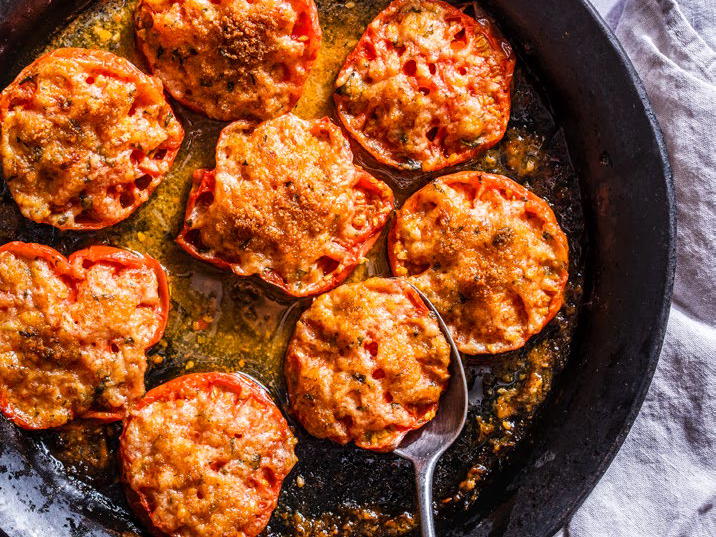
Pomodori Gratinati
6 ingredients · 1 hr 5 mins

Insalata di Agrumi
10 ingredients · 15 mins
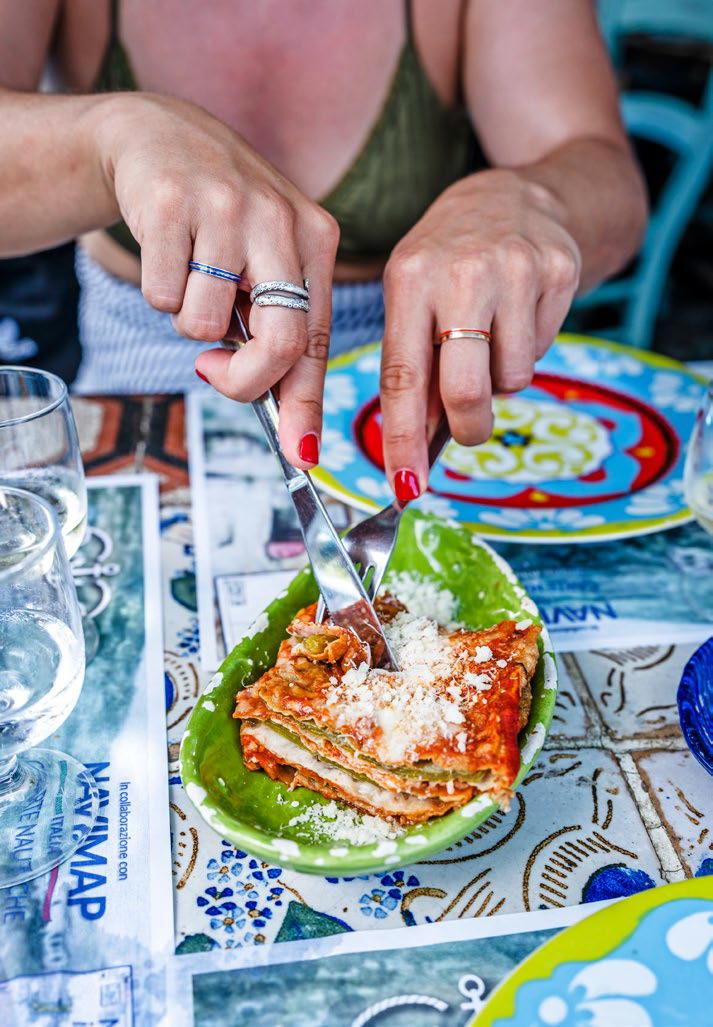
Parmigiana di Melanzane
7 ingredients · 1 hr 55 mins
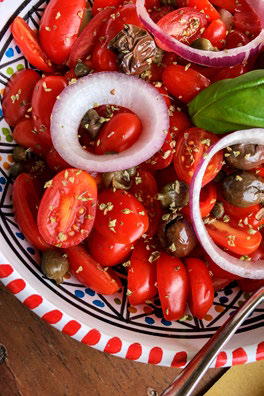
Insalata Pantesca
9 ingredients · 40 mins
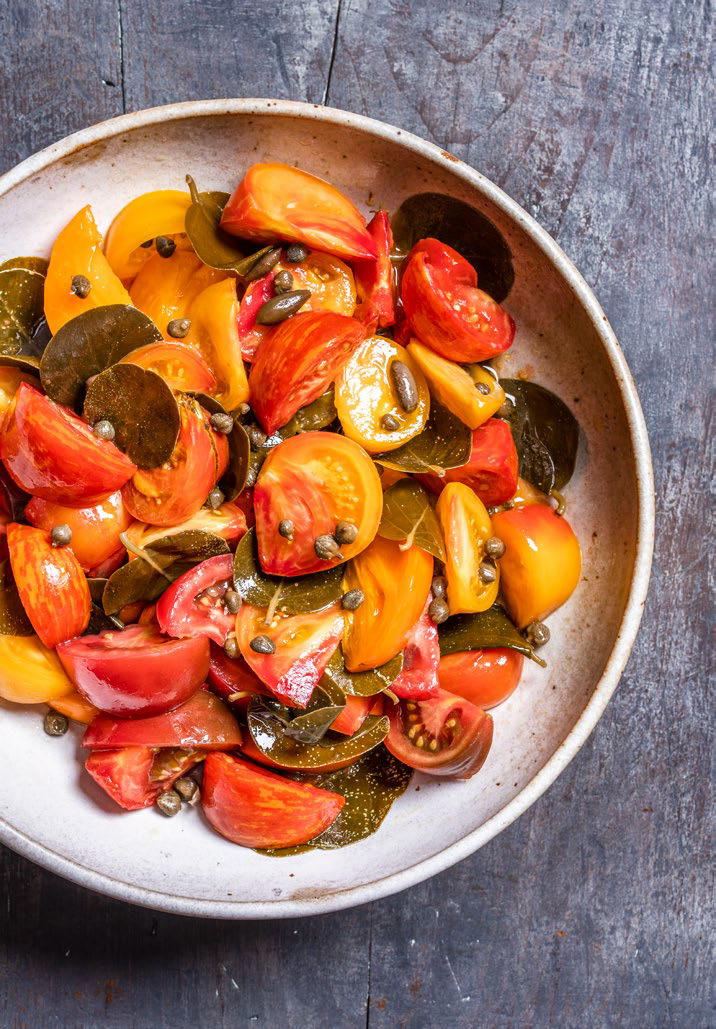
Insalata di Foglie di Cappero
6 ingredients · 10 mins

Foglie di Cappero Salate
3 ingredients · 15 mins

Broccoli con Pinoli e Uvetta
7 ingredients · 25 mins
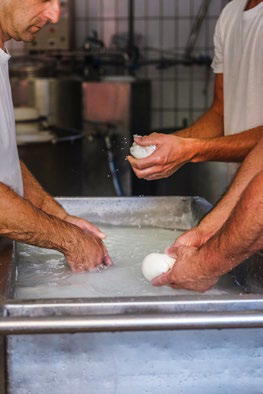
Insalata Caprese
6 ingredients · 1 hr
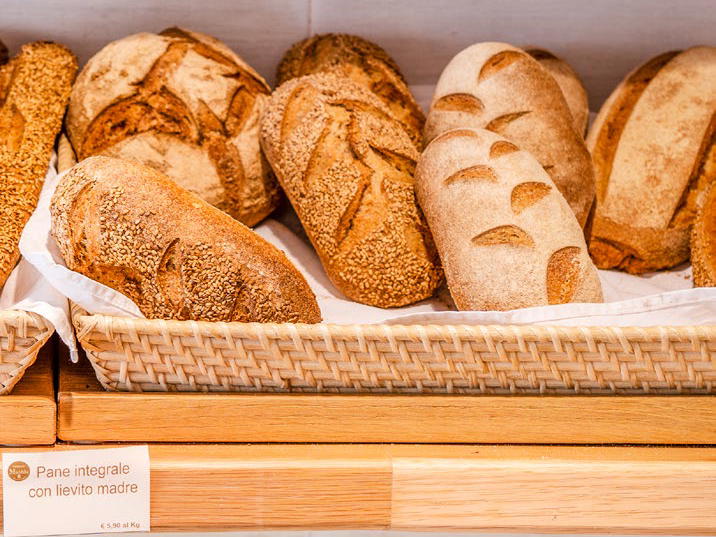
Pane Siciliano al Sesamo
8 ingredients · 4 hrs 5 mins
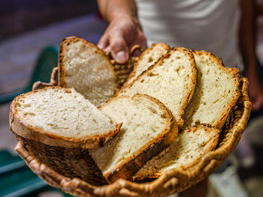
Su Civraxiu
5 ingredients · 20 hrs 45 mins
Chapter 7
Breads
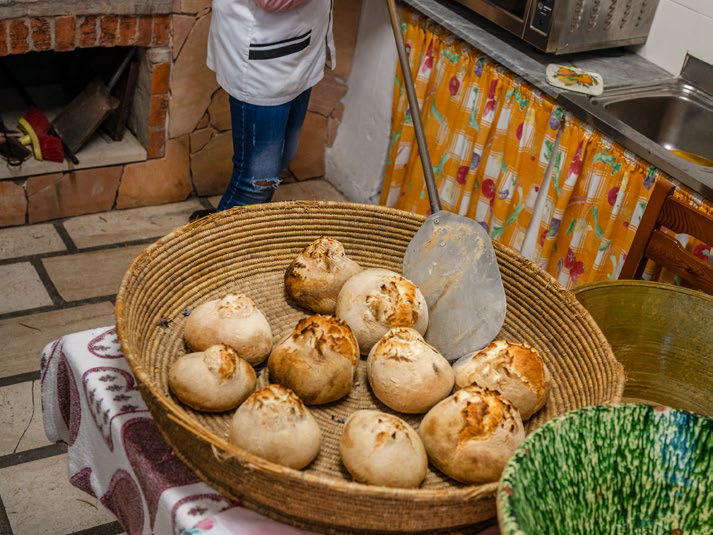
Lievito Madre
3 ingredients · 4 days 4 hrs
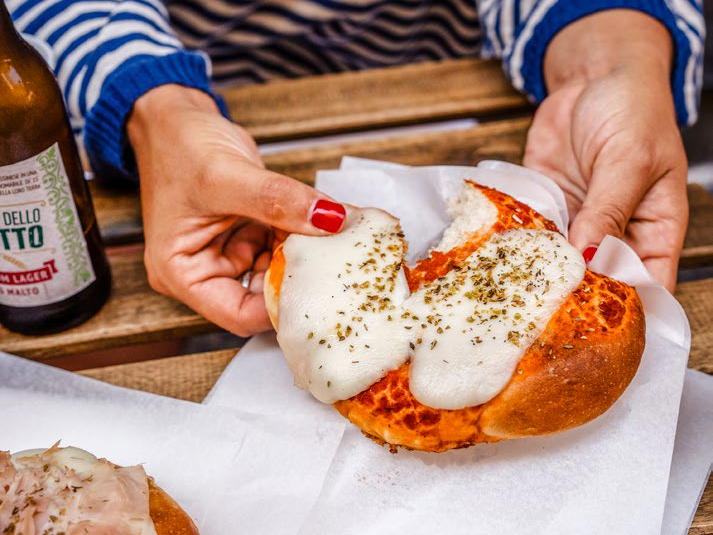
Pizzette Siciliane
10 ingredients · 2 hrs 45 mins
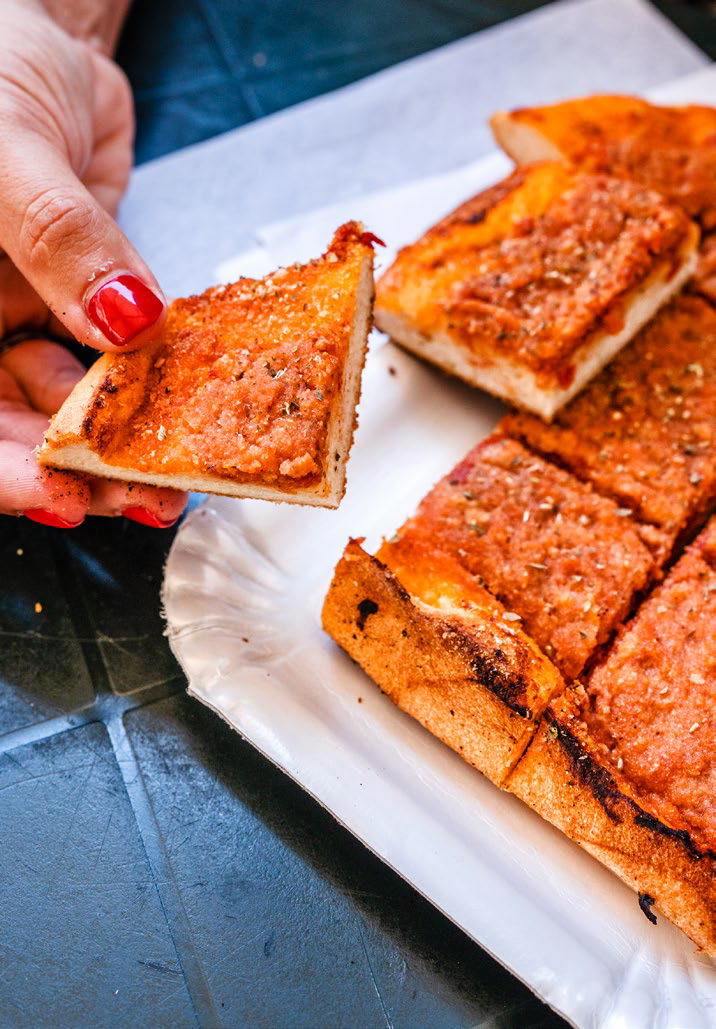
U Sfinciuni
10 ingredients · 3 hrs 5 mins

Sfinciuni Topping
7 ingredients · 1 hr 5 mins
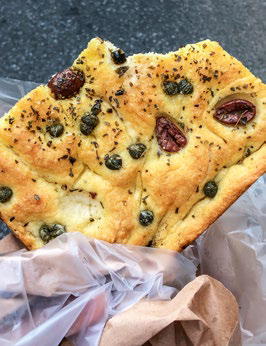
Focaccia con Capperi e Olive
9 ingredients · 3 hrs 5 mins
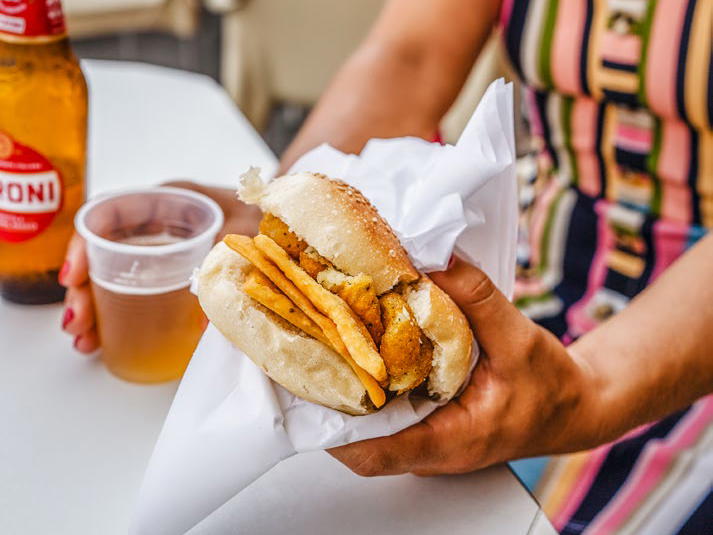
Vastedda
9 ingredients · 2 hrs 45 mins
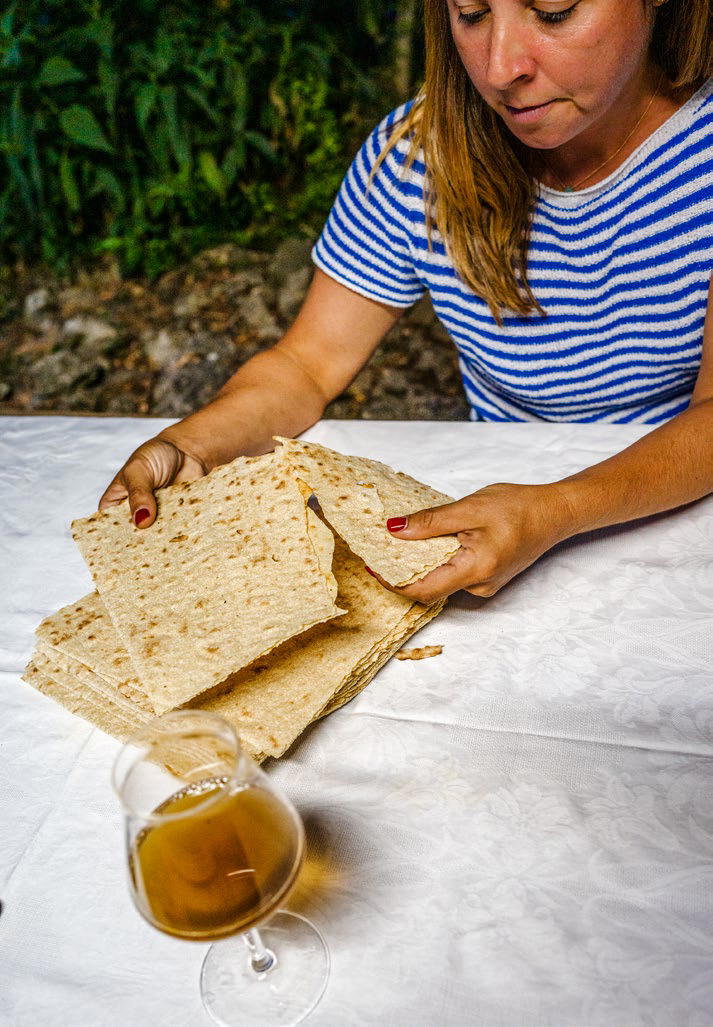
Pane Carasau
4 ingredients · 1 hr 20 mins

Lievito Madre per Pane Carasau
3 ingredients · 4 hrs
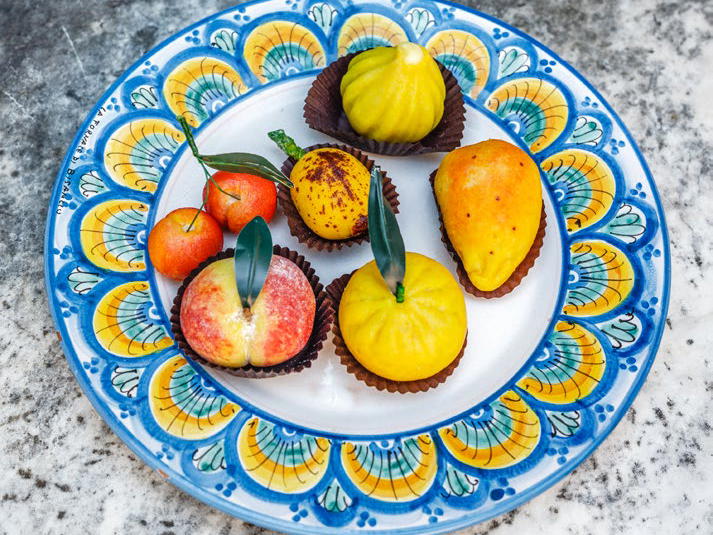
Frutta Martorana
9 ingredients · 20 hrs
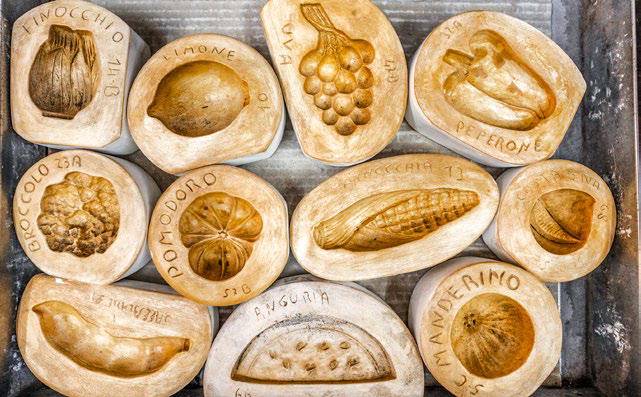
Almond Flour
2 ingredients · 5 mins
Chapter 8
Desserts
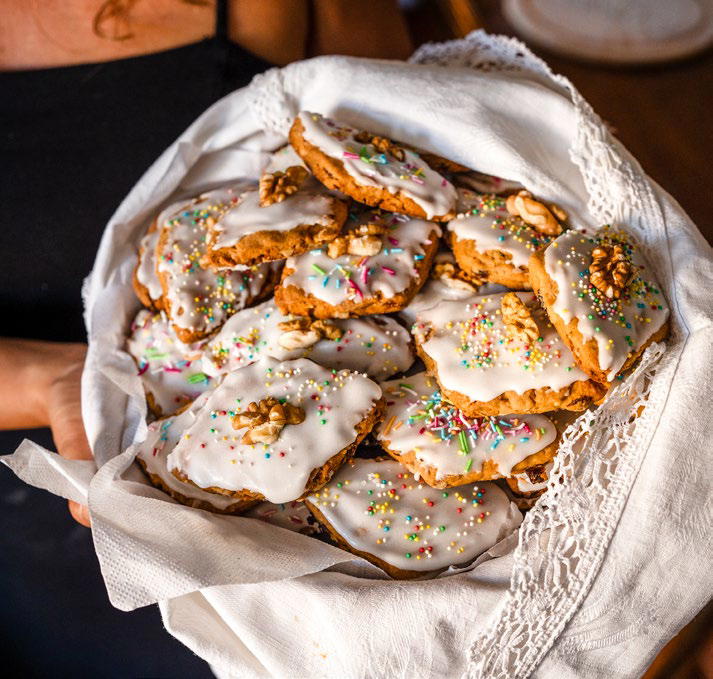
Sos Papassinos
12 ingredients · 45 mins
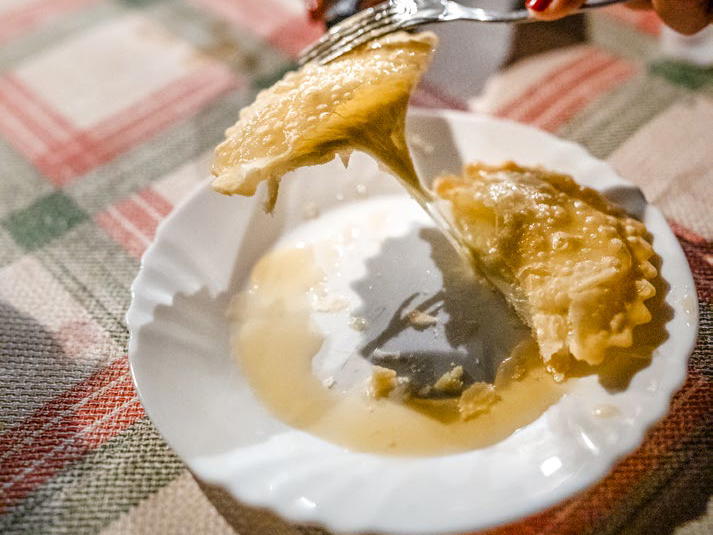
Seadas
8 ingredients · 1 hr 12 mins
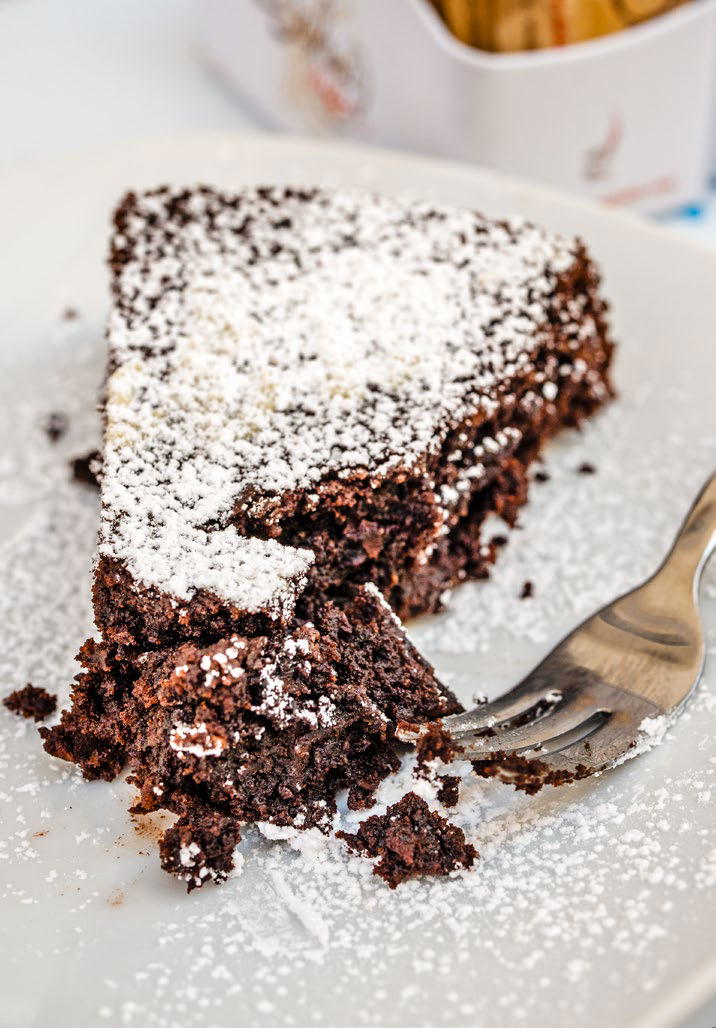
Torta Caprese
6 ingredients · 1 hr
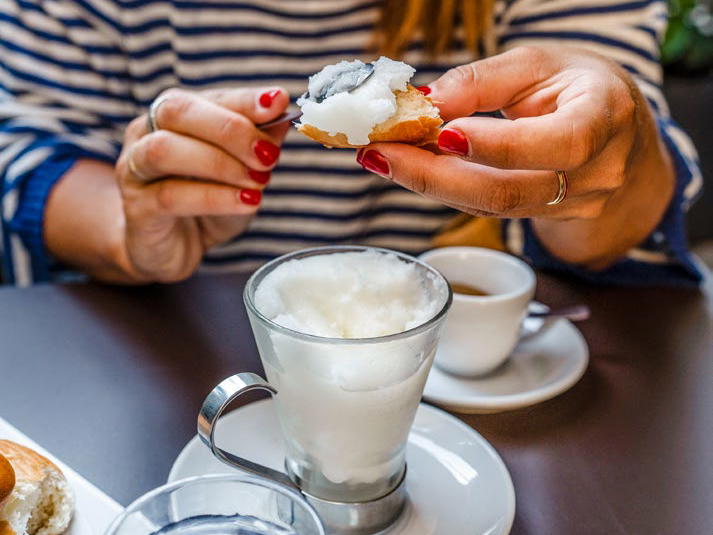
Granita di Mandorla
4 ingredients · 30 mins

Zeppole Benedettine
13 ingredients · 45 mins
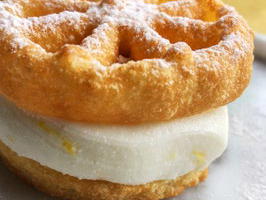
Baci Panteschi
7 ingredients · 16 mins
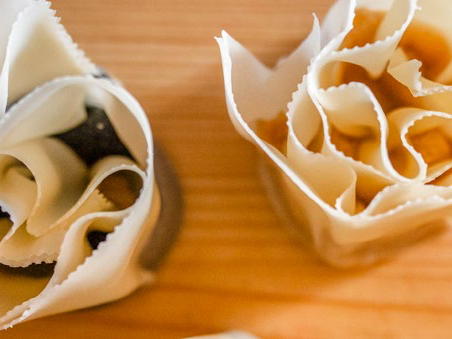
Caschettas
9 ingredients · 1 hr 15 mins
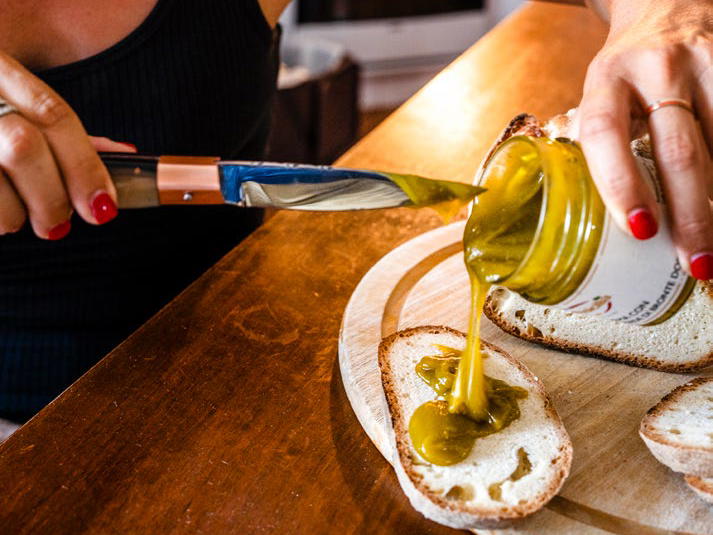
Crema di Pistacchio
3 ingredients · 15 mins
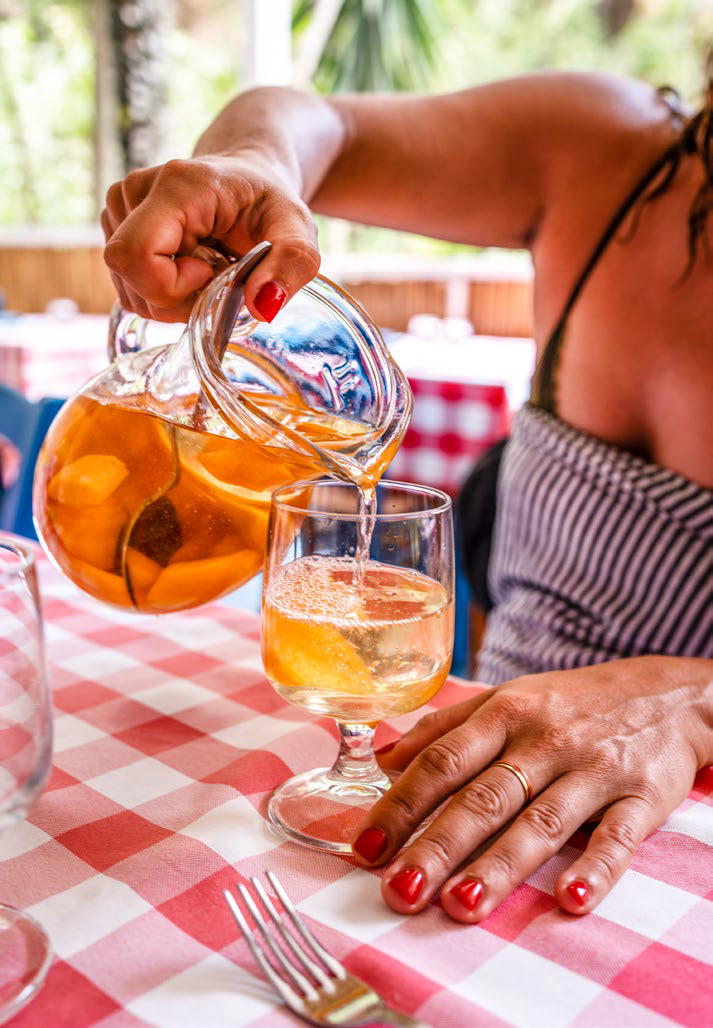
Pesche al Vino Bianco
2 ingredients · 2 hrs

Liquore al Miele e Zafferano
4 ingredients · 3 days 1 hr 25 mins
Chapter 9
Cocktails, Liquers, and Wines
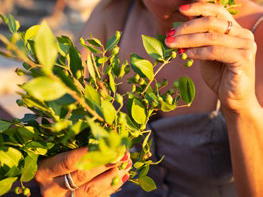
Liquore al Mirto
4 ingredients · 15 mins
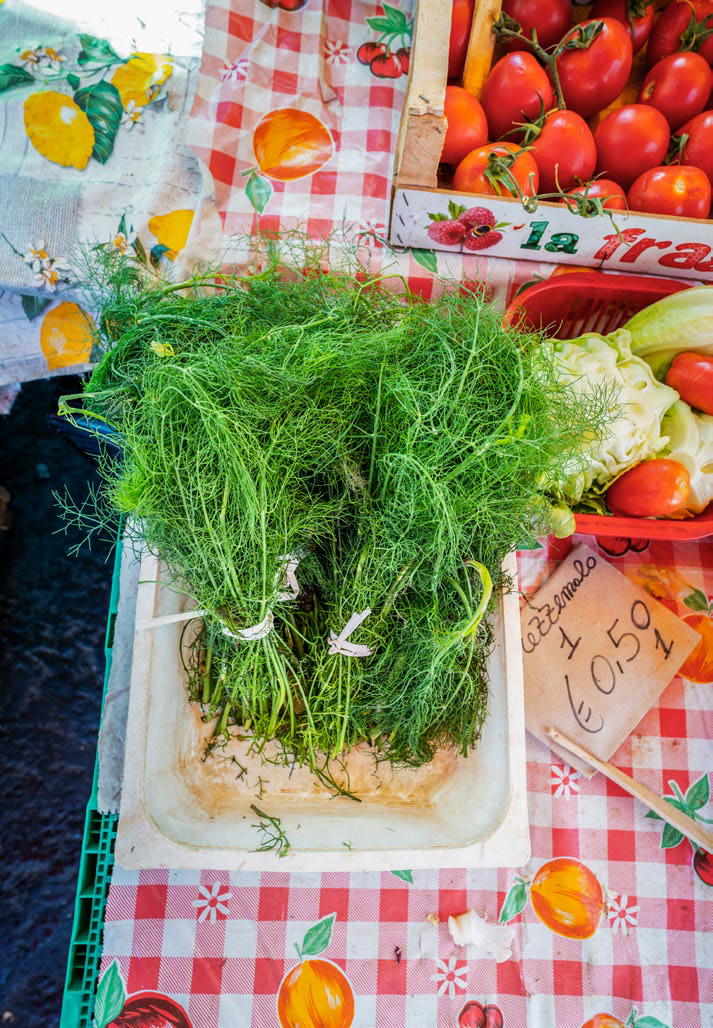
Filu ‘e Ferru al Finocchio
4 ingredients
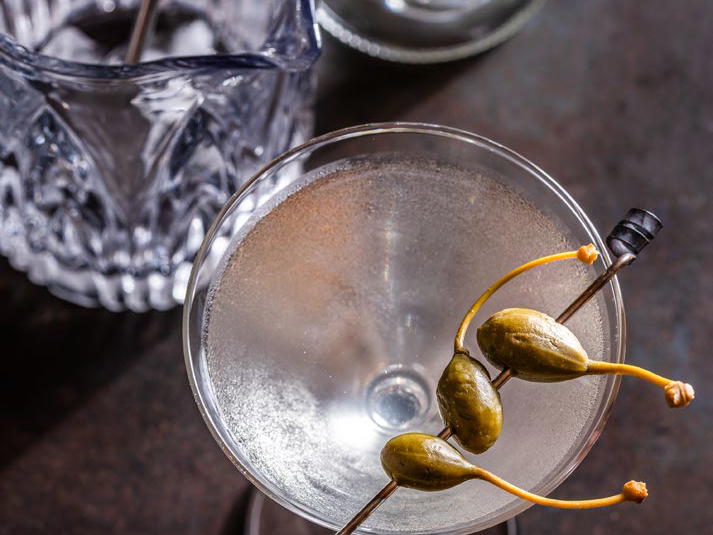
Martini Sporco al Cappero
4 ingredients · 10 mins

Sapa di Fico d’India
2 ingredients · 3 hrs 50 mins

Liquore al Carciofo
7 ingredients · 15 days 5 mins
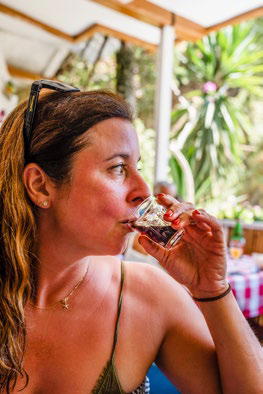
Rucolino
5 ingredients · 15 days 25 mins
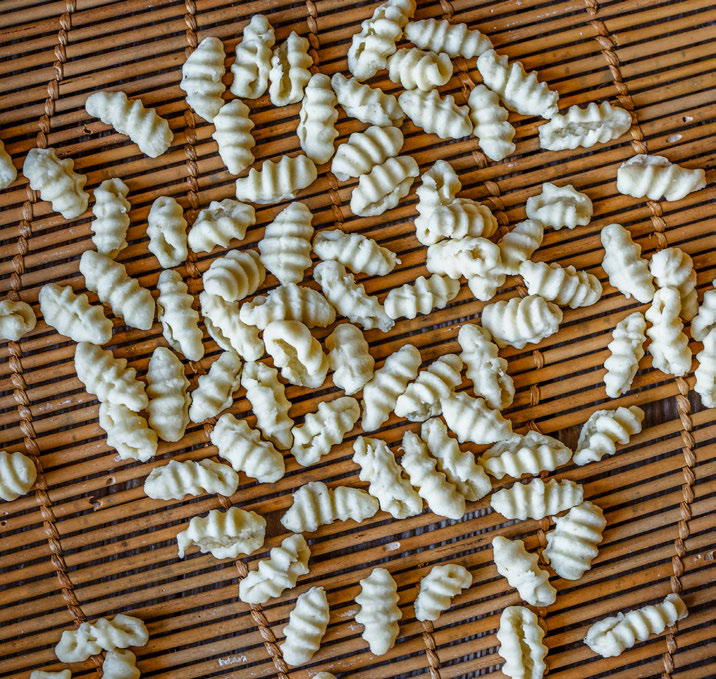
Maccarrones de Poddighe e Malloreddus
3 ingredients · 45 mins
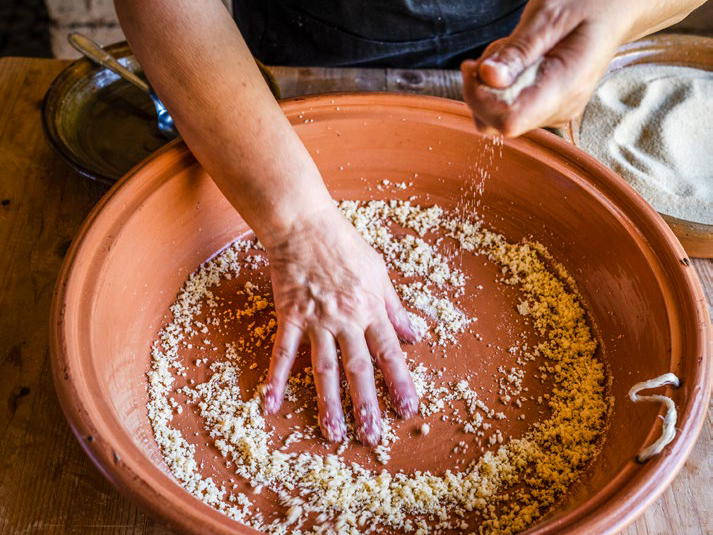
Cùscusu e Fregula
3 ingredients · 4 hrs 20 mins
Chapter 10
Appendix
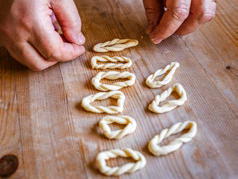
Busiate, Trofie, E Lorighittas
4 ingredients · 1 hr 5 mins

Ravioli Panteschi
7 ingredients · 2 hrs 35 mins

Ricotta di Pecora
4 ingredients · 30 mins
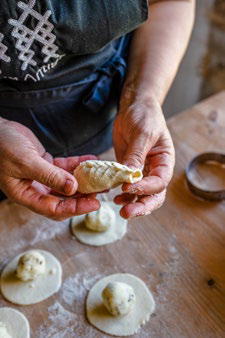
Culurgiones
11 ingredients · 35 mins
Chapter 11
Introduction
Introduction
No one goes to the Amalfi Coast or Capri hoping for bad weather, but there are few places I know of that bring such high aesthetic drama before a rainstorm. Count yourself lucky if you’ve ever experienced gray-black clouds intensifying the contrast of the coast’s green-hued terraced farmland just before bursting open. That was the scene that greeted me on my very first trip to Italy—or anywhere outside the US—as a high school Latin student in the early spring of 1996 (shout-out to public schools that value a classical education). It poured for most of our stay in Sorrento on the mainland, the sea air delivering the smells of damp pavement, orange blossoms, and jasmine as it gusted through the poorly insulated tiled halls of our pensione.
In spite of the weather, the ferries were running to Capri the next morning. This would be my first island experience during a trip brimming with firsts. The sea was choppy below an ominous sky of churning clouds, so only a few of us actually got on the boat. Others, preempting seasickness, stayed behind. I’m proud to say that I was one of the few who didn’t lose her morning cappuccino and cornetto on the way over. A little green around the gills, my classmates and I landed in Marina Grande, Capri’s main port, and took the funicular up to Anacapri, the village at the top of the island. It was nearly empty. It felt like we had been dropped into a movie set.
The buildings had been freshly painted white in anticipation of the impending tourist season, shops were open (I recall buying a Benetton dress in the most unflattering pea-green hue in the history of retail), and locals loitered in the town square, but there were no other visitors around.
Capri, a place that can be an overwhelming tourist hell during high season, was stunning and magical that day, and it felt like we were pioneers discovering a remote Italian village. It’s a feeling I have when I venture two blocks from downtown on most small islands in Italy. The Italian islands are universally beautiful, and their food, vistas, and lifestyles have obvious allure, but they also carry this promise of adventure and discovery that you can only fully grasp once you experience them for yourself.
My next island trip, five years later in 2001, was to Sicily, a much larger destination. I was a rising college senior and spending the summer in Rome courtesy of a generous fellowship I was awarded by Yale to fund travel for my college thesis. The paper was all about the Amazonomachy, the legendary battle between the Greeks and the Amazons, a scene the Romans enthusiastically carved in high relief onto their marble coffins in the mid-second century (turns out high school Latin is practical).
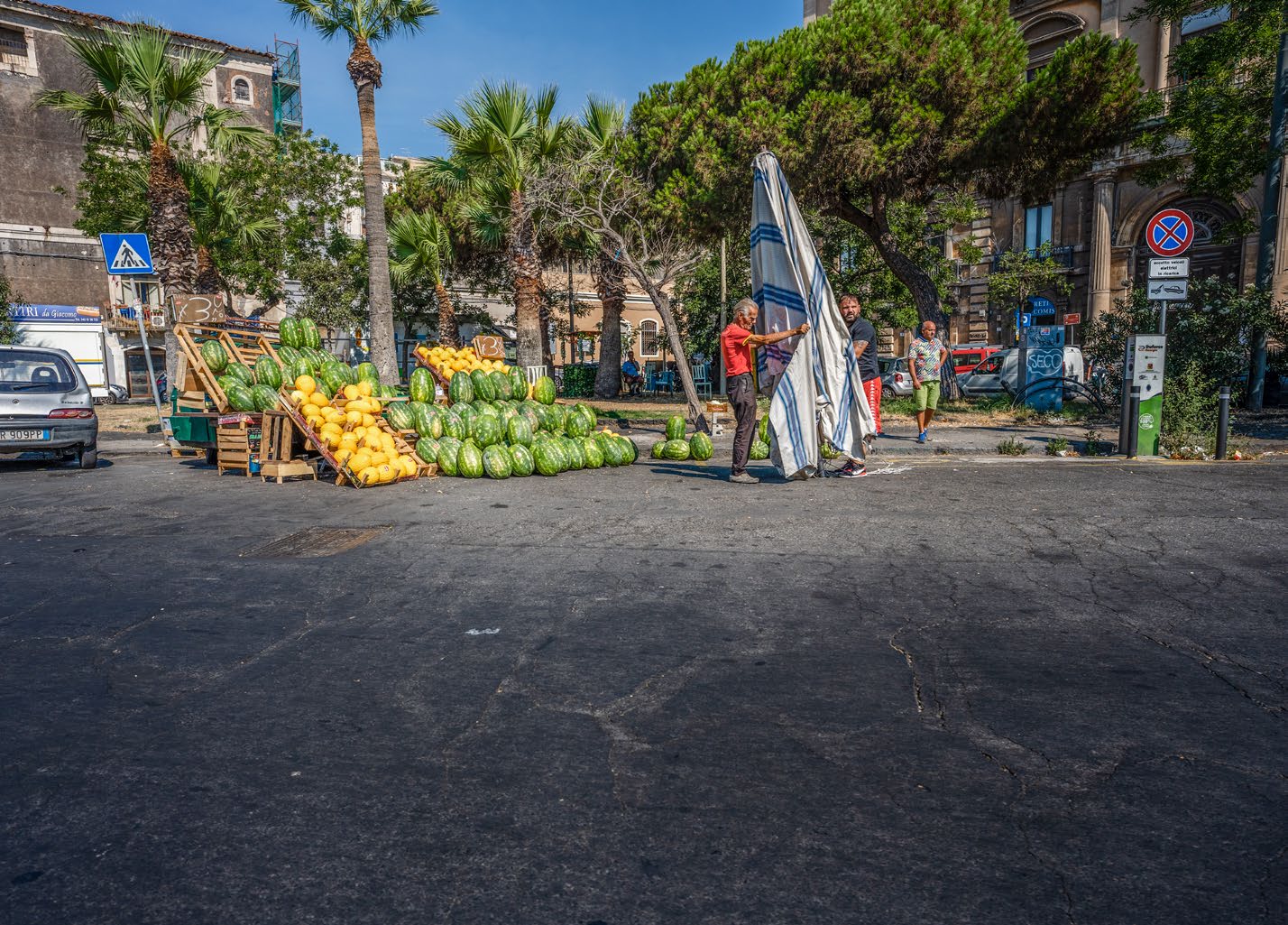
This was the era of guidebooks and calling cards and paper maps. There wasn’t much online about traveling around Sicily, but I had a copy of The Rough Guide to Italy, a thick tome of nearly one thousand pages describing Italy’s twenty regions in detail proportionate to their tourist appeal at the time. Both terrified and exhilarated by the lack of coverage on Palermo, Sicily’s largest city, I boarded a train from Stazione di Roma Termini to Stazione di Palermo Centrale.
I had booked myself into a ladies-only sleeping car that was scheduled to leave at nine p.m. and arrive at nine a.m. It was a hot and humid August night, and my fellow passengers were three Sicilian women, two of whom spoke only dialect and a third who spoke Italian with a thick Palermo accent. At the time, I had only a year of intermediate Italian class under my belt, and the language wasn’t yet clicking for me. I knew I was in for a confusing twelve hours.
The train was sweltering, so I reached up to open the window and was sharply reprimanded in the formal voi common in Sicily: “Eh, no! Non apritela! Un colpo d’aria ci farà venire un torciollo!” (Essentially: “Leave the window closed or a breeze will enter and give us a stiff neck.”) By that time, I had been in Italy for two months— but that was long enough for me to know that Sicilians possess a hysterical fear of drafts, attributing to them every imaginable ailment, and 10 food of the italian islands_all_4p_r1.indd 10-11 food of the italian islands_all_4p_r1.indd 10-11 I wasn’t going to be able to negotiate for even a small sliver of open window. Unfortunately, two months was not long enough for me to have acclimated to Italy’s sweltering summer nights.
I made my bed with the folded sheets provided by the conductor while my fellow passengers unwrapped carefully prepared sandwiches, their dinner. Oops, I should have thought of that. Before hitting the lights, one of the women barricaded the door with her luggage, a stack of cardboard boxes. “Ladri,” she said—thieves—placing one finger beneath an eye and pulling gently downward, the Italian gesture for “watch out.” Yikes. The trip was off to a frightening start.
The train’s slow crawl toward Sicily was one of the more disorienting travel experiences of my life. We stopped at Campoleone, a town just outside of Rome, and inexplicably paused on the tracks for an hour. Farther along, not far past Caserta, we began a jerking crawl that lasted an hour. I almost fell asleep at one point and was jolted awake by the train’s screeching brakes. By six a.m., the train was gliding along the coast of Calabria, the last mainland region before Sicily. The rising sun cast a gauzy light over a sea that seemed just feet away. I dozed at last in this moment of calm.
What happened next was both scary and unexpected. I awoke to hollow clanging and metal thuds. We’ve derailed for sure, I thought. I’m going to die in this sauna on tracks. The other passengers in the car calmly got up, grabbed their purses, said a word I didn’t yet know—lo stretto—and left the car. Um, what about those thieves, ladies? I thought. I’m not going anywhere. I stayed put, and only when they returned 30 minutes later and the train chugged out of a dark tunnel past Messina train station did I realize THE TRAIN HAD GOTTEN ON A BOAT. We had crossed the Strait (lo stretto) of Messina, the narrow strip of sea between Calabria and Sicily on a boat. They had gone up to the deck to watch the approach to Sicily, which would have been over a bridge, had the public works projects dedicated to building it not been sidelined for decades by bureaucracy and fears of mafia interference.